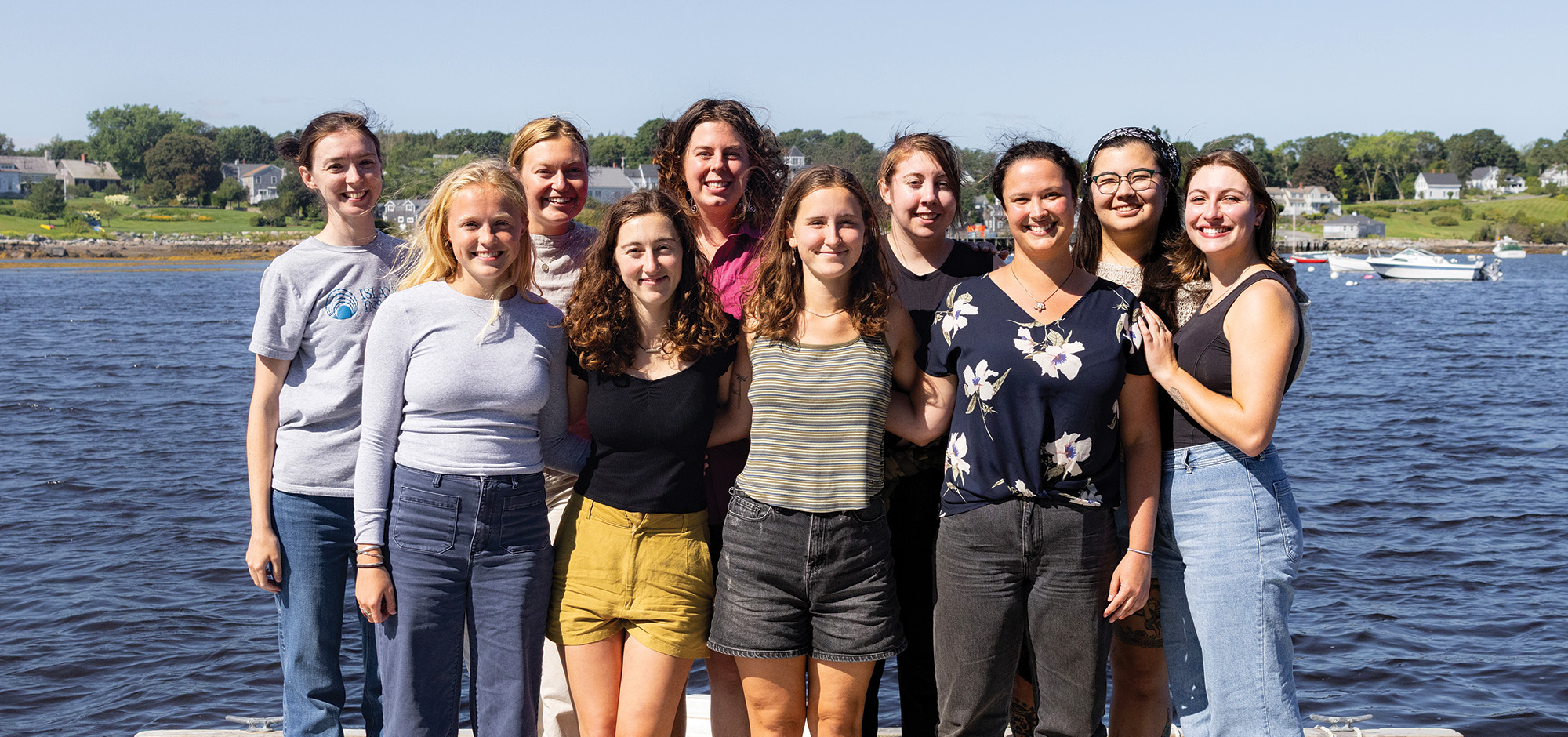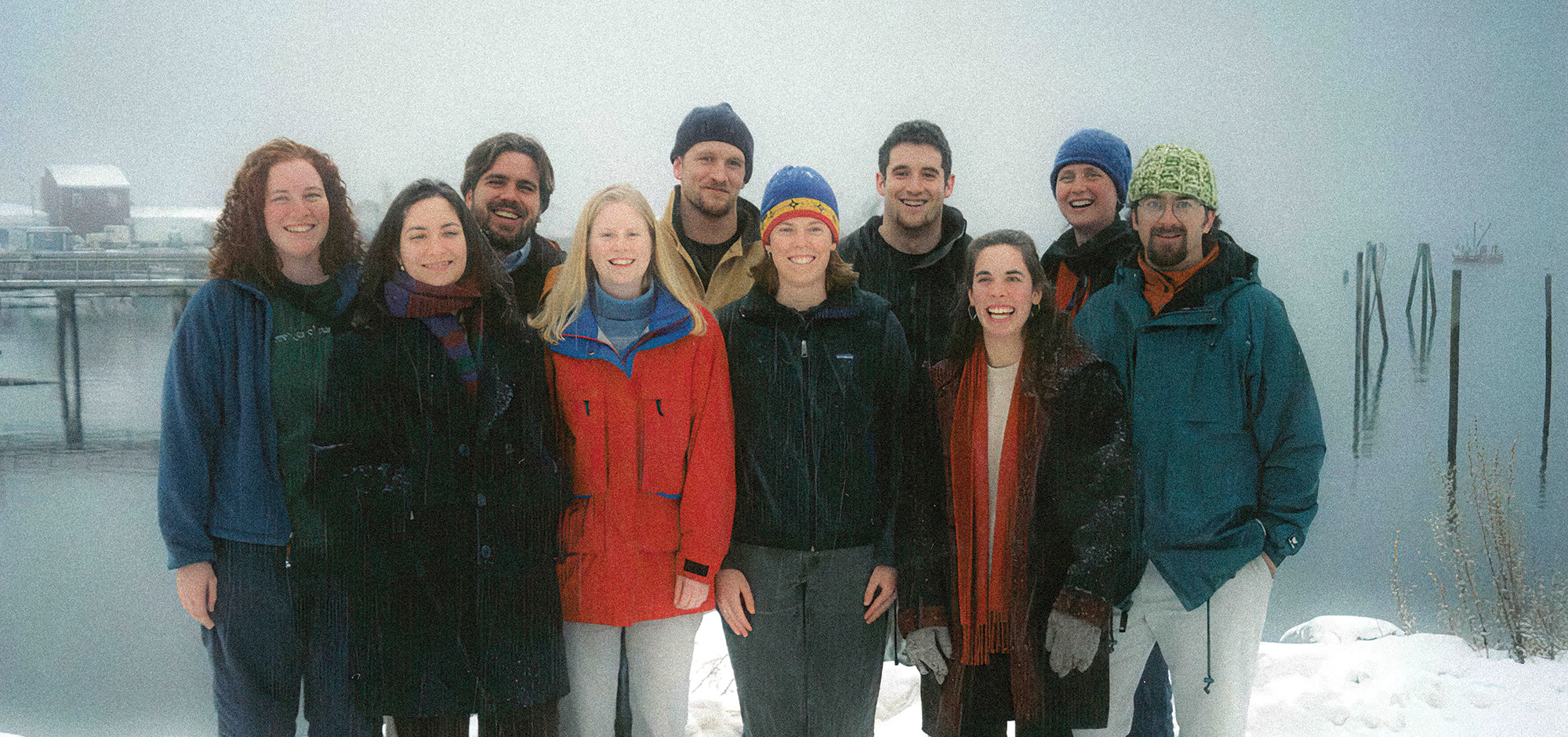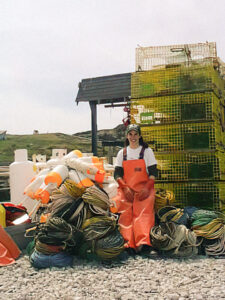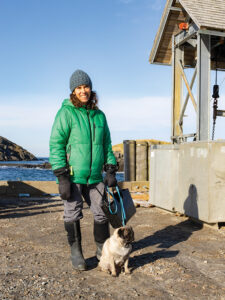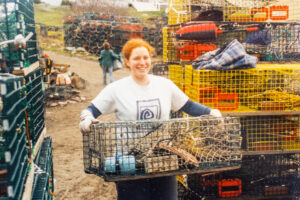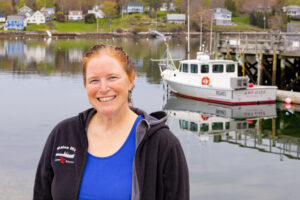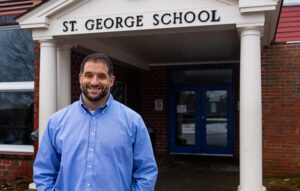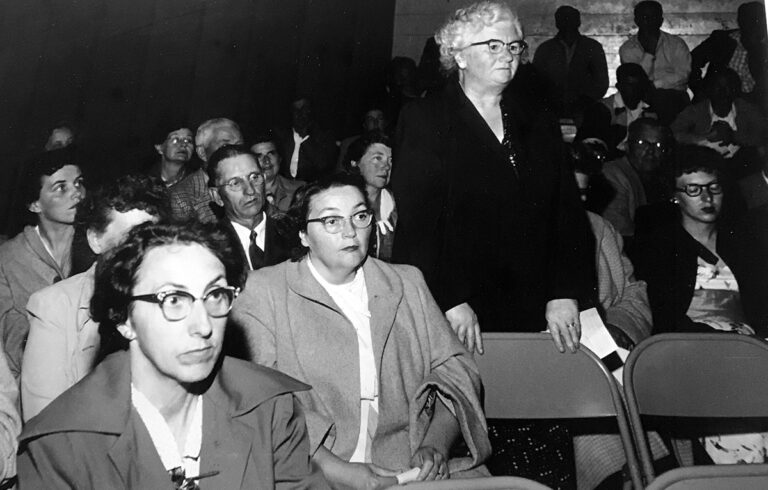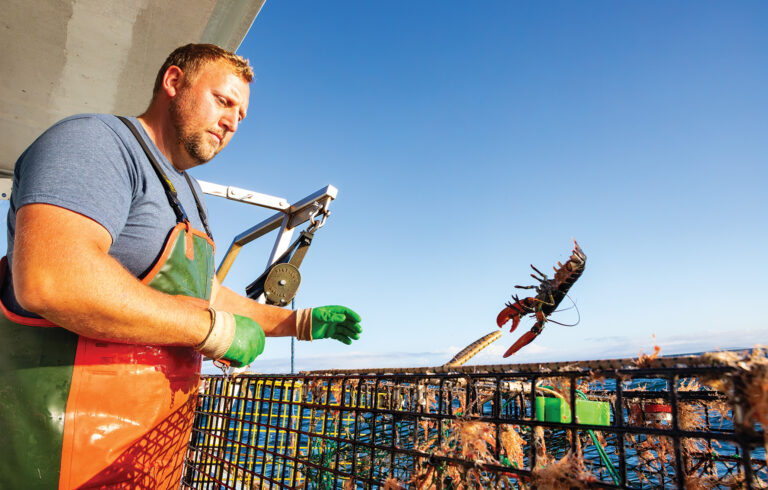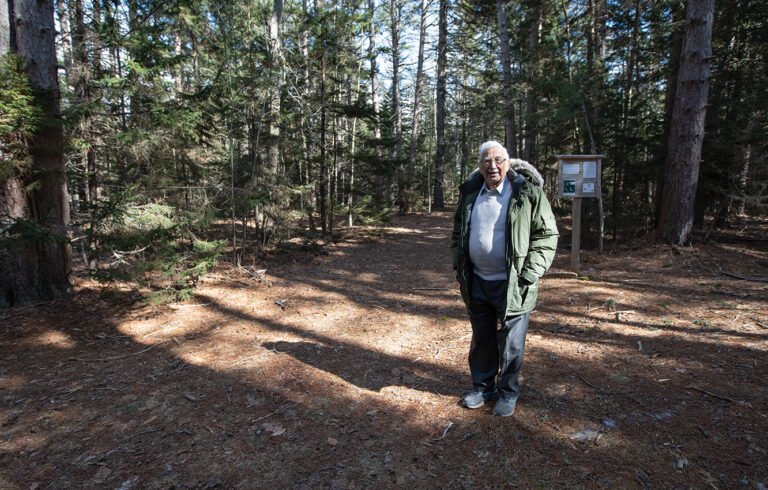The first Island Institute Fellows were placed in communities 25 years ago in 1999, with the program aiming to provide more hands and minds for island, and then mainland towns to tackle the endless challenges to their viability.
Beyond meeting that important goal, the program also trained successive generations of community leaders who continue to serve Maine and beyond. But the true power of the program is in the relationships that are built.
Fellows become a part of the community. They bring casseroles to potluck suppers, they volunteer to coach ultimate frisbee teams, they pick strawberries for the library shortcake fundraisers, and play fiddle at public events. They reach for shovels and candles when winter storms hit, and they celebrate new babies and grieve losses alongside their neighbors.
The program was launched when Island Institute staff found themselves fielding requests from islanders who needed a little extra capacity, research support, or specific skills to help with critical projects. Staff couldn’t say yes to every important request, but since sustaining communities was core to the Island Institute’s mission, they didn’t want to say no, either. They had to come up with a creative way to respond.
In 1999, the Fellows program was piloted as a way for islands to get help for those priority projects. Susan Little was placed on Chebeague Island in Septmber to do sea sampling as part of a larger project on Casco Bay water quality. Later, Jessica Stevens was placed on Monhegan, where she worked surveying juvenile lobsters with fishermen and helped the teacher in the one-room school.
Jes Stevens moved to Monhegan in 2000, and her fellowship lasted until 2002. She has lived there ever since. Jes’s fellowship impacted her host community in a variety of ways and featured several projects related to marine science and education, including surveying lobster traps for juvenile lobsters. This project required her to spend time aboard each of the Monhegan’s fishermen’s boats, and she eventually married one of those fishermen. Together, they raised a son on the island who attended the Monhegan School. Jes currently serves as chair of the school board. She is also deputy emergency management director for Monhegan Plantation and operations manager for the Monhegan First Aid Station and responds to 911 emergencies on the island.
It soon became the norm that Fellows found their responsibilities expanding from the initial purpose as the excitement in the community grew with the addition of skilled, energetic volunteers to focus and move projects forward. Following the early success, eight Fellows were placed in communities the next year, working with schools, towns, libraries, and historical societies. Since then, 148 fellows have lived in communities working on community led projects.
The program has evolved since those first Fellows stepped off the ferry and into their work. Some changes have been small—all Fellows now start at the same time to build a cohort that can learn from and support each other. Other changes have been large—housing has been provided since the early 2000s as a benefit so Fellows can get to know their community on a deeper level without worrying if their stipend can cover cost of living.
The program has built on each successful fellowship and learned from the unsuccessful ones through the years; an eight-year affiliation with AmeriCorps provided benefits to the Fellows and helped professionalize the systems of support and training that are still in use today.
In 2003, the first Island Fellows were placed on the mainland—in Friendship and on the bridged Deer Isle. In 2023, more than half the Fellows were placed in mainland or bridged communities, so the program’s name changed from Island Fellows to Island Institute Fellows to recognize their service across the coast and that lots of rural coastal communities can benefit from having a skilled set of hands engaged in projects.
But for all the program’s changes through its 25-year history, the value of the relationships that are created has remained the same. Jes Stevens still lives on Monhegan and serves in many roles, including as the deputy EMA director, a critical service for her island community.
Island Institute Fellow alumna Kathleen Reardon was one of the first Fellows deployed on the Maine coast. She spent her fellowship on Islesboro 2000-2002 where she used her marine biology education and skills with geographic information systems to help the town. She also worked with the school where she taught students about ocean ecosystems and during the summer, spent time aboard lobster boats conducting surveys. Nearly 25 years later, she continues that work as one of the state’s leading lobster scientists, working for Maine’s Department of Marine Resources as senior lobster biologist. In this role, she is the liaison between science management, policy makers, and lobstermen. Her favorite days are still the ones spent on the water observing and listening to Mainers who make their living from the sea.
Morgan Witham served at the school on Isle au Haut.
“I’ve certainly bonded with the students,” she observed at the time of her fellowship. “They’ve been pretty excited by the prospect of a ‘gym teacher’ and have been quick to press me for a two-year commitment.”
Her commitment to island education is now decades-long as she is still helping Isle au Haut residents access education and training through her role as the director for nearby Deer Isle Adult and Community Education.
On Frenchboro, Scott Sell framed the evolution of settling in as a Fellow in one of his program reports from 2007:
“It just keeps getting more comfortable and easier. Helping with smaller things has become second nature. Just today, I was walking by somebody who was working outside and we got to talking. And before I knew it, we had just moved a cord of firewood from his truck to a shed. We were so busy gabbing and laughing that we just did it. He said, ‘Thanks,’ and I asked, ‘For what?’ He laughed and shook his head and I realized that no one here thinks I’m out of place. I’m doing what they are doing.”
Fellows witness the power of community and occasionally they are a part of history. Thea Youngs was working in the Chebeague town office setting up GIS systems in 2007 as the island seceded from the town of Cumberland and became its own municipality.
Of the experience, she said:
“My favorite aspect of this job has really been the chance to see a town come together from scratch. The town has learned how to conduct elections, what is involved in the issuing of liquor licenses, and uncovered zoning inconsistencies. While it’s nice to talk and dream about the big picture of independence, running a town is really all in the details that are quickly being figured out.”
Island Institute Fellow Mike Felton worked with the town of Vinalhaven from 2000 until 2002, working with the island’s public school. After his fellowship, Mike lived on the island for several years. He married another Island Institute Fellow, raised a family there, and became principal of the Vinalhaven School, a position he held until 2009. He then went to law school. Today, he is the superintendent of the St. George Municipal School Unit, a job which he describes as the perfect intersection of his three passions: education, community, and policy. He currently serves on the Island Institute Board of Trustees.
After two years of experience, work, and training, Fellows translate their experience into the rest of their careers. Megan Bailey, a senior economic analyst for the state of Maine, said she “found being placed into a leadership role in a community profoundly affected my professional growth. I was used to interacting strictly with colleagues, people who had studied the same thing I had. Having to work with people with a variety of different backgrounds taught me how to listen and accept varying points of view and explain my thoughts in a non-technical way.”
Not every Fellow stays in Maine, but all of them become leaders in their communities, in their careers, and at the state level. The network of Fellows is nationwide, but the one thing they remember—and which connects them to Maine—is the relationships they built here.
Kate Tagai is a director of Island Institute’s Center for Sustainable Communities through which she oversees Island Institute Fellows. A native of Vermont, she spent three years as a Peace Corps Volunteer in the South Pacific country of Vanuatu.

